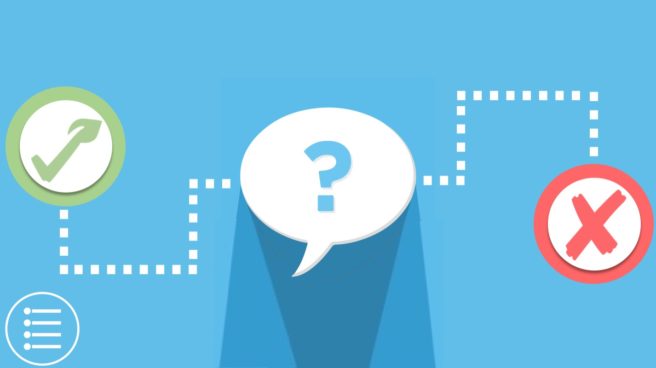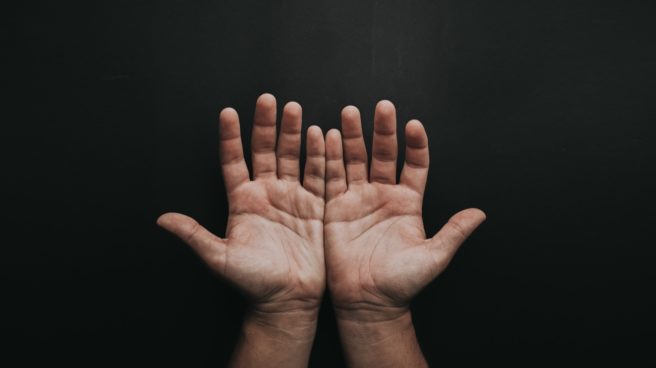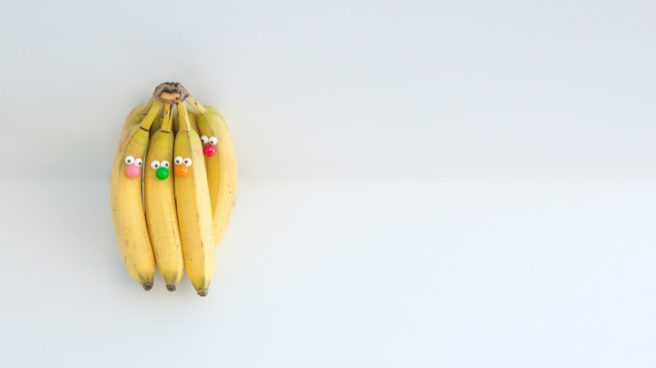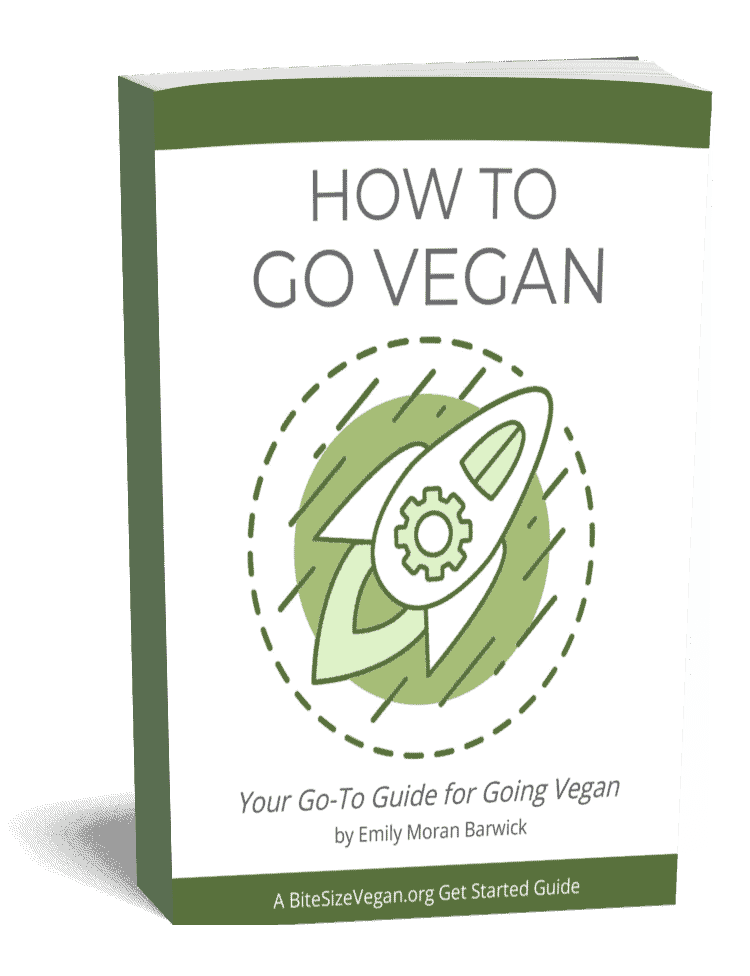Under the ever-watchful eye of the Vegan Police, we explore the question: When can you officially say “I’m vegan”? What must you exclude? Is it “enough” to be free of meat, dairy, eggs and honey? Do you have to also be careful with sugar, cosmetics, birth control? What else?
When you really start to get into the intricacies of veganism, things can become rather overwhelming rather quick: What about medication, toiletries, beauty products, plastic, car tires, and on and on. With all of these potentially animal-laden items in our everyday life (many of which we aren’t even aware of), when can someone officially call themselves vegan? [tweet this]
For this post, I do have to highly recommend watching the video for the opener at least (all about getting your vegan license)–i just can’t translate that into a compelling blog post! Now, onwards:
On my website and channel, while I do cover the major vegan issues, like meat, dairy, and eggs, and the ethical as well as health, social, and environmental considerations of these “products”, I also address some of the lesser-known issues within veganism, like honey, wool, pet food, horseback riding, alcohol, bivalves, tattoos, medication, sugar, birth control and more to come.
So, I’m often asked a very valid question: With all of these hidden animal ingredients and lesser-known issues, when can someone officially call themselves “vegan”? What if you’ve stopped eating meat, dairy, eggs and even honey but you take medication tested on animals, as all medication is non-vegan—at least in the United States—and containing lactose?
Or maybe you’re good on every front but you got a tattoo before you knew to make sure it was vegan? Or perhaps you don’t consume any animal products or overt byproducts but still eat processed foods containing sugar and things like L-cysteine? (It’s an alpha amino acid derived either from feathers, hog hair or human hair–the vegan-ness of which…may be debatable–but that’s for another video post entirely!)
So, where do we draw the line? What all must one eliminate before saying “I’m vegan”? This is a rather complex question, and I have to say first that I personally do not presume to be the “ultimate vegan authority”—but I will at least share my thinking on this matter. Unlike my pure educational vegan nuggets, this post is more of an opinion piece, which I always like to clarify.
In my video series on the history of veganism, when we finally make it to the 1900s we’ll be covering the formation of the Vegan Society and the coining of the term “vegan” in 1944, which is usually attributed to vegan society co-founder Donald Watson, though he personally attributed it to two other people entirely, so stay tuned for those details in the history series.
It wasn’t actually until 1979 that the Society put forth a definition of the word vegan, as,
“A philosophy and way of living which seeks to exclude—as far as is possible and practicable—all forms of exploitation of, and cruelty to, animals for food, clothing or any other purpose; and by extension, promotes the development and use of animal-free alternatives for the benefit of humans, animals and the environment. In dietary terms it denotes the practice of dispensing with all products derived wholly or partly from animals.”
While no organization or person really owns or officially decrees the specifics of veganism as its principles have existed for thousands of years, I personally am a fan of the Society’s definition—especially as it focuses on the eradication of all forms of cruelty, and active fighting against exploitation—not just the dietary terms of veganism.
For the purposes of this post’s inciting question, however, I think the portion “as far as possible and practicable” is key. For those unfamiliar, or who aren’t native English speakers, “practicable” is not the same as “practical.” “Practicable” is more narrowly defined, meaning: “capable of being put into practice, feasible.” Or, to put it simply, doable.
My one hesitation with this phrasing is that people may—as people are wont to do—try to stretch it to fit their current practices. Saying “not eating bacon is just not possible” isn’t quite grasping the intention of this clause. The founders of the Vegan Society formed their association during the war and struggled their way through food rations rife with animal products—which they adamantly petitioned against, often having very little to eat. So saying you’re vegan while chowing down on bacon isn’t really what they had in mind.
So, what is possible and practicable to exclude? Well, obviously, meat—which includes fish and marine life—dairy, eggs and honey are rather simple—though, admittedly not always easy for many people. And leather, fur, wool and silk are no problem with all the synthetic and natural materials out there. But things like medication can be tricky—especially in the light of serious medical illness. Watch my video on medication for an in-depth answer, but basically, for those conditions that are preventable, I say: prevent them. But for severe genetic conditions or others that are untreatable otherwise, do take care of yourself so you can be healthy enough to fight against the use of animal testing for all pharmaceuticals.
Now what about foods that say they may contain traces of dairy? Or foods with processed sugar made with bone char, the literal charred bones of animals? Well, my outlook on these, which I’ve said before, is that once we stop slaughtering 150 billion sentient being every year, we won’t be so hard-pressed to find new and inventive ways to use their byproducts. And once facilities are no longer processing animals and their byproducts, we won’t have to worry about them possibly ending up in our food. But boycotting foods that may have been processed in plant that may contain x, y, or z, isn’t really going to bring on a revolution–it’s attacking these industries at their core that will.
Now what if you simply don’t know and find out months or years down the line that you’ve been eating or participating in something that wasn’t vegan? Were you as a result not vegan that entire time? To me, this is where intention and true ignorance come in.
If your honest intention was to not consume or support anything exploitative, then I say you were—and are—vegan.
True ignorance—and I don’t mean that in a negative way—is separate from willful ignorance. It’s when you honestly don’t know any better. This is the state of many non-vegans who have yet to receive any kind of education about what animals are going through, where their food comes from and what its impact is on the environment and their health. Willful ignorance, on the other hand, is knowing all of these things and refusing to do anything about it, or simply denying it in order to stay in the bliss of, well, ignorance.
So the key, at least in my mind, is what you do once you have the information. That, to me, determines your “vegan-ness.” [tweet this]
And one final–but rather vital–note. While it’s important for there to be some definition of veganism, and the constant striving for further elimination of cruelty, exploitation, and environmental destruction in the choices we make, it’s equally important for veganism to be approachable. Because, as we saw in the opener, when we become judgmental or exclusionary, people are less likely to actually become vegan–a decision which, in all honestly, can be quite challenging and terrifying.
Those of us who have been vegan for some time can forget how incredibly overwhelming it all seems and be tempted to demand instant enlightenment of all new vegans. But we must remember this is a process and a journey. Yes, we need to eliminate everything we can that contributes to suffering, and, ideally as fast as we can. But we also need to value what we are doing and be open to learning more and going from there. Put simply, if you don’t know, then how can you be expected know? But once you do know, then it’s up to you to act on that information. And above all, not to give up on being vegan if you feel you’ve yet to reach perfection.
I hate to break it to you, but if you’re human and alive, you’re not going to get there. You can say there is no way to be 100 percent vegan, which I discussed with Gary Yourofsky in this video post, but I think that doing the very best you can with the information you have and being constantly open to new information is being 100 percent vegan as the term itself is defined as just that–a striving for improvement.
I hope this video has been helpful for those of you who asked me this. If you enjoyed it, please give it a thumbs up and share it around to help others who may be intimidated about going vegan. If you’re new here, be sure to hit that big red subscribe button for more awesome vegan content every Monday, Wednesday, and some Fridays. If you want to help support Bite Size Vegan in my ongoing efforts to provide quality, free, vegan education, check out either of the support links below, and for perks and rewards for your support, check out the Nugget Army by clicking that logo over there, or the link in the iCard sidebar or description below. And be sure to check out some of my related videos while you’re here! Now go live vegan, with the best of intentions, and I’ll see you soon.
— Emily Moran Barwick







Love the vegan police thingy! :o)
To paraphrase a Monty Python classic:
“No one expects the vegan inquisition!”
(in severe cases of don’t-getticisim, see https://www.youtube.com/watch?v=7WJXHY2OXGE&feature=youtu.be&t=37)
Hi Emily,
Very funny opening. Donald Watson said he would live into his 90’s to show the negative people that said he would die young being a vegan. And I believe he did.
yes he did!
Nice. I eat vegan and now only buy vegan products spend stupid amounts of time reading labels and googling ingredients I cannot pronounce in stores but don’t consider myself vegan cause I lack y’alls passion for the animals and activism. So am I vegan?
I think you’re vegan- you’re not consuming or using animal products or byproducts ;)
Sweet! Thanks
as always, helpful and considerate…
.I tend to call myself a pure vegetarian, as opposed to a vegan. I personally think the word “vegetarian” should do it. Eggs and dairy not being veggies and all. But, I can be literal.
Great videos and info!
Thank you!
that’s what vegetarian used to mean initially…but then it evolved to include eggs, dairy and honey…. thanks for sharing!